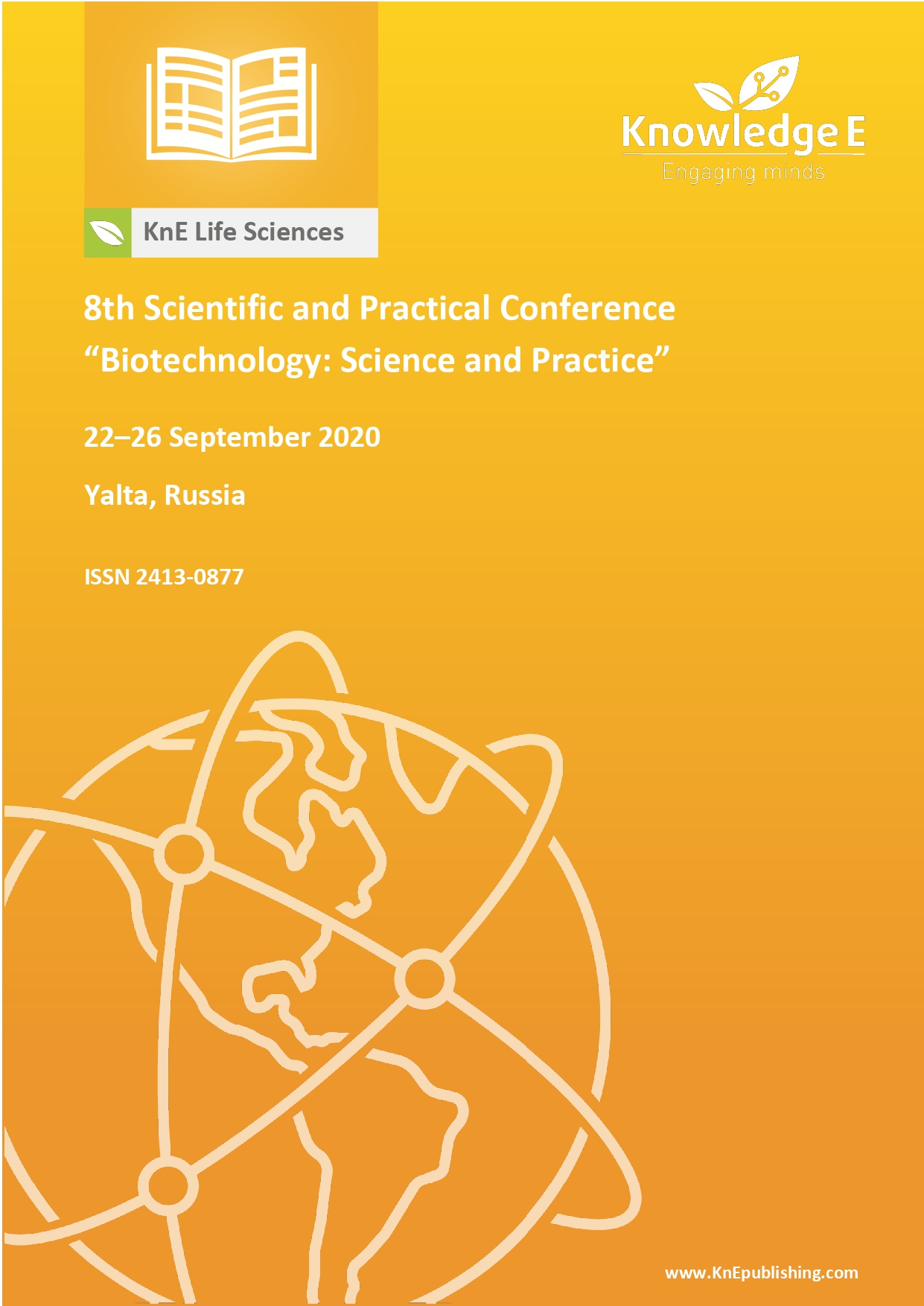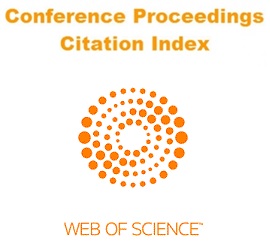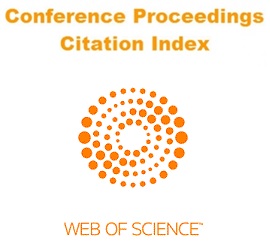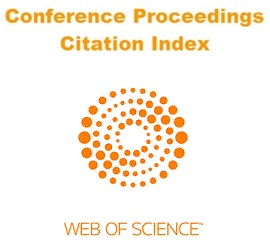Archives - Page 2
-

Sustainability and Resilience Conference: Mitigating Risks and Emergency Planning – Life Sciences Track
The Sustainability and Resilience Conference is an annual conference organized by the Deanship of Graduate Studies and Scientific Research at the University of Bahrain (UOB), and under the patronage of His Excellency, Prof. Ryadh Hamzah, President of the UOB. The concept of “Sustainability and Resilience” in itself is not new worldwide, yet still new to the Middle East region in general, and to the Gulf states in particular. In 2018, the first edition of the conference is conducted in collaboration with the Northumbria University in the United Kingdom and the United Nations Development Program (UNDP), and is dedicated to the main theme of “Mitigating Disaster and Emergency Planning” in three vital sectors: (1) Energy and Engineering, (2) Health and Science, and (3) Cyber Security and Networks. The conference is a great opportunity for positioning Bahrain as a “Regional Hub” for sustainability and resilience and provides participants (both academics and practitioners) with gigantic opportunities for knowledge sharing and experience exchange that would eventually accumulate in setting new policies and strategies.
Conference date: 15–16 October 2018
Location: ART Rotana Amwaj – Kingdom of Bahrain
Editors: Dr. Mohamed Qader (Head of Editorial Committee, University of Bahrain); Members of Editorial Committee: Dr. Andrew Collins (Northumbria University), Dr. Maitland Hyslop (Northumbria University), Dr. Maamar Taleb (University of Bahrain), Dr. Hanan Albuflasa (University of Bahrain), Dr. Khalil Jassim (University of Bahrain), Dr. Hala Sanad (University of Bahrain), Dr. Nada Megahed (University of Bahrain), Dr. Joao Pinelo Silva (University of Bahrain), and Dr. Omar Al-Abbasi (University of Bahrain)
Organizer: University of Bahrain
Sponsor: Tatweer Petroleum Company
Published: 15 October 2018
ISSN: 2413-0877 -

2nd International Conference on Sustainable Agriculture and Food Security: A Comprehensive Approach (ICSAFS)
Food security and agricultural sustainability have become crucial global issues in the last few decades. Although a number of solutions have been proposed, the issues need to be addressed comprehensively from different points of views including agricultural production, biodiversity, conservation, and innovation, as well as a policy related to the problem. Therefore, all the experiences of respective researchers, academicians, practitioners, and professionals worldwide need to be gathered in a common unified voice. The 2nd International Conference on Sustainable Agriculture and Food Security was held as a scientific forum to unite ideas, visions, and missions as well as to arrange appropriate strategies in anticipating local and global challenges in the future. The aims of the conference were to identify opportunities and challenges with a view to strengthen food security and sustainable agriculture, establish a network among the related institutions, and to share ideas and recent findings on food security and sustainable agriculture.
Conference date: 12–13 October 2015
Location: Jatinangor, Sumedang, West Java, Indonesia
Editors: Mimin Muhaemin, Yusup Hidayat, and Hendronoto Arnoldus W. Lengkey (Universitas Padjadjaran, Indonesia)
Organizer: Universitas Padjadjaran, Indonesia
Sponsors: SKK Migas, Pertamina Hulu Energi Offshore North West Java (PHE ONWJ), and PT Sewu Segar Nusantara (Sunpride)
Published: 23 November 2017
ISSN: 2413-0877 -

The 2019 International Conference on Healthcare and Technology (ICHT 2019)
This conference was organized by the STIKEP PPNI Jawa Barat and the National Cheng Kung University Hospital, Taiwan. Digital technology has become a trend and many traditional medical devices are gradually moving towards it. Since medical devices are closely life-related, the credibility is particularly important. When we combine medicine and technology, there are surely some unknown risks and problems that must be overcome. This conference aims to bring together all stakeholders from the Asia Pacific region to share their research results. The 2019 ICHT provides a much needed scientific platform that focuses on development issues and needs in the Asia and Pacific region. Research and clinicians will have the opportunity to present and discuss the latest development, increase the publication, and build on collaboration or networking. The speaker come from different country, such as Dr. Hang Joo Cho from Korea, Dr. Samarth Mittal from India, Prof. Koshy Philip from Malaysia, and Prof. Uman Suherman, Dr. Tutik Sri Hariyanti, Dr. Henny Suzana Mediani, Dr. Taryudi, Dr. Sugiharto, and Dr. Linlin Lindayani from Indonesia.
Conference topics: Nursing leadership and management, medical and surgical nursing, maternal and child health, critical care, mental health nursing, and community health nursing
Conference dates: 18–19 July 2019
Location: Grand Tjokro Hotel, Bandung
Chief Academic Editor: Linlin Lindayani
Organizer: STIKep PPNI Jawa Barat and National Cheng Kung University Hospital
Published: 9 October 2019
ISSN: 2413-0877 -

8th Scientific and Practical Conference "Biotechnology: Science and Practice"
This collection contains selected papers from the international research conference 8th Scientific and Practical Conference held in Yalta, Russia on the 22nd–26th of September 2020. This event was hosted by the Voronezh State University of Engineering Technologies.
The theme of this conference was Biotechnology: Science and Practice. The conference brought together researchers to share and discuss the latest research, challenges and ideas concerning the use of biotechnology in fields as varied as medicine, agriculture, food technology, ecology, engineering and resource management.
This KnE Life Sciences collection contains 56 peer-reviewed papers covering a range of topics related to biotechnology. Several papers explore methods to enhance the feed of livestock to maximize animal productivity, while others consider the challenges of biological pest control. A number of papers examine the environmental impacts of pollution from sources such as heavy metals, road maintenance, and pharmaceuticals, while other researchers examine resource efficiency and the safe and efficient processing and disposal of waste products. Another key theme is innovations in and evaluations of the use of biotechnology to create optimized food products that maximize output or nutritional properties, maintain safety and quality, or are designed for people with conditions such as diabetes or iodine deficiency.
These papers will be of interest to academics, students or professionals researching or working on biotechnology, bioengineering, bioinformatics, bioenergy, resource conservation, food biotechnology, agricultural biotechnology, forest biotechnology, biogeotechnology, medical biotechnology, biopharmaceuticals, cell engineering, genetic engineering, or the production of biologically active substances.
Conference date: 22–26 September 2020
Location: Yalta, Russia
Organizer: Voronezh State University of Engineering Technologies, Russia
Editor: Vasiliy Nikolaevich Popov
Published: 13 January 2022
ISSN: 2413-0877 -

The Fifth International Luria Memorial Congress «Lurian Approach in International Psychological Science»
Organized every five years, the Luria International Memorial Congress is an important event for psychologists all over the world as A.R. Luria still remains a world-renowned, widely cited author who has an enduring influence on different branches of psychology and related sciences. The conference commemorated the 115th anniversary of the birth and 40 years from the death of Alexander Luria (1902–1977). The theme of the Congress was ‘Lurian Approach in International Psychological Science’. The highlight of the conference was the large number of international contributions, that is, papers submitted jointly by representatives from different countries. All submitted abstracts were reviewed and the top-quality presentations were published, however, the Program Committee does not always share the opinions of some of the authors. The authors’ style and orthography were preserved.
Conference topics: topics that dealt with disciplines such as cultural-historical psychology, neuropsychology and neurosciences, developmental neuropsychology, including problems of early neurocognitive development of children, neuropsychological rehabilitation of neurological, mental and psychosomatic patients, remediation of learning disabilities, neurolinguistics, neuropsychology of individual differences, psychogenetics, psychophysiology, general, social, developmental and teaching psychology, psychology of health, ergonomics and psychology of the subject of professional activity.
Conference date: 13–16 October 2017
Location: Ekaterinburg, Russia
Editors: J.M. Glozman, O.S. Vindeker, I.A. Ershova, and M.E. Permiakova
Organizers: Ural Federal University named after the First President of Russia B.N. Yeltsin and the Moscow Lomonosov State University
Sponsor: Russian Foundation for Basic Research, Project No. 17-06-20554/17
Published: 1 November 2018
ISSN: 2413-0877 -

The First International Conference on Health Profession
The First International Conference on Health Profession was organised to facilitate lecturers to network, collaborate, and exchange ideas with foreign and domestic experts through international seminar; encourage scientific activities of lecturers, especially in obtaining opportunities for manuscript publications in reputed international journals through the journal coaching clinic; and facilitate the sharing of research results between higher education institutions within the Ministry of Health through oral presentation activities.
Conference dates: 23–24 July 2019
Location: Jakarta, Indonesia
Chief Academic Editor: Dr. Hj Lucky Herawati, SKM, M.Sc.
Sponsor: Forum Dokter Politeknik Kesehatan Kemenkes Seluruh Indonesia
Organizer: Cooperation between FDPKSI and APKESI
Published: 23 December 2019
ISSN: 2413-0877 -

The 1st International Conference on Global Health
For the last decade, the top 10 causes of death across the world have shifted slightly. According to CDC (Center of Disease Control and Prevention), the deaths caused by communicable diseases have reduced and by non-communicable diseases have increased. This phenomenon is also happening in Indonesia. However, unlike in developed countries, the epidemiologic transition is not complete—communicable diseases remain a burden. The decline of communicable diseases is very modest, thus creating a double burden of diseases. Additionally, emerging infectious disease has also become a concern.
As the most reputed university in Indonesia, Universitas Indonesia, has taken into account to develop solutions to tackle these global health problems. This encouraged the University to actively seek global solutions and hold the 1st International Conference on Global Health—an event in which experts concerned and experienced with global health issues came together and held discussions. This conference will be held annually and is a distinguished event for experts, academicians, practitioners, and other people concerned about global health.
Conference date: 9–11 November 2017
Location: JS Luwansa Hotel, Jakarta, Indonesia
Editors: Dr. Budi Utomo, MPH, Ph.D.—Faculty of Public Health, Universitas Indonesia, Indonesia; Dr. Sabarinah—Faculty of Public Health, Universitas Indonesia, Indonesia; Indri Hapsari Susilowati, Ph.D.—Faculty of Public Health, Universitas Indonesia, Indonesia; and Prof. Orawan Kaewboonchoo—Faculty of Public Health, Mahidol University, Thailand
Organizers: Health Sciences Cluster of Universitas Indonesia—Faculty of Medicine, Faculty of Dentistry, Faculty of Public Health, Faculty of Nursing, and Faculty of Pharmacy
Sponsor: Directorate Research and Community Engagement, Universitas Indonesia
Published: 8 January 2018
ISSN: 2413-0877 -

The First Asian PGPR Indonesian Chapter International e-Conference 2021
This collection contains selected papers from the First Asian PGPR Indonesian Chapter International e-Conference 2021 held in Denpasar, Bali, Indonesia on the 28th of August 2021. This event was hosted by the Biology Study Program, Mathematics and Natural Sciences Faculty, Udayana University.
The conference was held to bring together researchers, microbiologists and industry executives to share and discuss the latest research on technological growth and innovation in the field of plant growth-promoting rhizobacteria (PGPR).
This KnE Life Sciences collection contains 59 peer-reviewed papers covering a wide range of studies on PGPR. Some researchers discuss the positive influence of PGPR on sustainable agriculture, forestry, horticulture, and organic and urban farming while also analysing its prospects and commercial success. Others explore the impact of PGPR on climate change, and water and energy conservation. A few researchers also examine the role of PGPR in bioremediation and waste management, and how organic and natural farming can be utilised to enhance ecotourism.
These papers will be of interest to academics, students and professionals researching or working in the fields of agriculture and environmental science.
Conference date: 28 August 2021
Location: Bali, Indonesia
Organizer: The Biology Study Program, Mathematics and Natural Sciences Faculty, Udayana University
Editors: Manugala Sankara Reddy, Ni Luh Suriani, Sarjiya Antonius, Tualar Simarmata, Ida Ayu Astarini, Loekas Susanto, Robbi Rahim
Published: 7 June 2022
ISSN: 2413-0877 -

International Symposium on Aquatic Product Processing (ISAPPROSH) 2013
This proceeding consists of papers presented at the 1st International Symposium on Aquatic Product Processing, Safety and Health (ISAPPROSH- 2013), with the theme of Maximizing Benefits and Minimizing Risks on Aquatic Product Processing: Blue Economy Approach. This conference was jointly programmed by the Directorate General of Marine and Fisheries Products Competitiveness Enhancement; Ministry of Marine Affairs and Fisheries, Republic of Indonesia; Department of Aquatic Products Technology; Faculty of Fisheries and Marine Science, Bogor Agricultural University; Tokyo University of Marine Sciences and Technology; and Indonesian Society of Fisheries Products Processing with the aim of sharing the research and technological innovation from institutions/organizations.
The Symposium included 9 very valuable keynote speeches (presented by experts from Japan, Thailand, European Union, and Indonesia), 65 oral presentations (26 in processing, 16 biotechnologies, 13 aquaculture, 10 fishing technology), and 33 posters (15 processing, 7 biotechnology, 1 fishing technology). This proceeding consists of 33 selected papers from 98 manuscripts that have been submitted.
All 33 manuscripts in KnE Life Sciences vol 1 (2015) had been reviewed by the editors from the University of Latvia, Riga Latvia; Linnaeus University, Sweden; International Islamic University, Malaysia; Universitas Merdeka Madiun, Indonesia; and Ma Chung University, Indonesia.
Conference date: 13–14 November 2013
Location: Bogor, Indonesia
Editors: Roy Hendroko Setyobudi (Malang, IDN), Juris Burlakovs (Kalmar, SWE), Maizirwan Mel (Kuala Lumpur, MYS), Praptiningsih Gamawati Adinurani (Madiun, IDN), and Zane Vincēviča-Gaile (Riga, LVA),
Published: September 2015
ISSN: 2413-0877Indexing: ISAPPROSH Conference Proceedings are indexed in the Web of Science (by Clarivate Analytics, formerly Thomson Reuters, and ISI) as of 14 July 2017.

-

The 3rd International Meeting of Public Health and the 1st Young Scholar Symposium on Public Health
In 2015, the Millennium Development Goals (MDGs) came to the end of their term, and a post-2015 agenda, comprising 17 Sustainable Development Goals (SDGs) with 169 targets, took their place. The 17 goals of the SDGs integrate all three dimensions of sustainable development (economic, social, and environmental) around the themes of people, planet, prosperity, peace, and partnership to be completed between 2016 and 2030.
Those 17 goals also offer a broader framework to address public health concerns in a more holistic way, recognizing the evidence that we can no longer separate poor health from climate change, inadequate housing, gender disparities, and economic privation. Every one of the 17 SDGs has significant public health implications.
Public health irrefutably has a central place in SDGs since it mentions strong commitments to reduce preventable maternal and child deaths, end the epidemics of communicable and non-communicable disease, strengthen health systems capacity and achieve Universal Health Coverage (UHC) as well as several targets under the other goals that are also directly or indirectly linked to the health goal.
The Faculty of Public Health Universitas Indonesia as the leading public health institution in Indonesia understands the importance of public health’s role in achieving SDGs. At the very basic, the involvement of FPH UI was started by building awareness of SDGs amongst its students in forms of academic and non-academic activities.
To accelerate with SDGs’ achievement, the students need an experience where experts from all around the world share their knowledge and research as well as build a professional network and youth involvement. To address this need, FPH UI has conducted annual International Meeting on Public Health (IMOPH) since 2015, initiated by the Postgraduate Student Association. In 2017, the 3rd International Meeting of Public Health (IMOPH) was held in conjunction with the 1st Young Scholar Symposium on Public Health (YSSOPH). With the theme “Public Health as an Art and Science to Achieve SDGs,” this event was attended by nearly 200 participants who showcased their creativity, achievement, and research to contribute to SDGs acceleration. Both symposium and conference shared the same theme and topics.
Conference date: 18–20 September 2017
Location: Faculty of Public Health, Universitas Indonesia, Depok, West Java, Indonesia
Editors: Dr. Dewi Susanna (Faculty of Public Health, Universitas Indonesia), Sumengen Sutomo (University of Michigan, USA; Faculty of Public Health, Universitas Indonesia), Prof. Meiwita paulina Budiharsana (Faculty of Public Health, Universitas Indonesia), Ade Widyati Prastyani, Doni Hikmat Ramdhan (Faculty of Public Health, Universitas Indonesia), Dr. Sabarinah (Faculty of Public Health, Universitas Indonesia)
Sponsor: Directorate of Research and Community Engagement, Universitas Indonesia
Organizers: Faculty of Public Health, Universitas Indonesia, Depok, West Java, Indonesia
Published: 28 February 2019
ISSN: 2413-0877 -

The 2019 International Conference on Biotechnology and Life Sciences (IC-BIOLIS)
The fourth industrial revolution era – which is denoted by automation in all fields including industry, financial, medical and education – is predicted to bring opportunities as well as disruption of relationships between human (society) and technology. This 4.0 Industrial Revolution will create new realms that humankind has never experience before. The readiness of human resources, technology and infrastructures are required to face the impacts of this revolution, as it will fundamentally change the way human lives, works and socializes. As such, it is important to ensure that the revolutionized technology will bring positive impacts to the society. This should be brought about by creating an integrated and comprehensive approach that involves stakeholders from all sections of society, including practitioners from public and private sectors, academia and researchers. Indonesia is a developing country which undergoes progressive changes towards a rapidly industrializing society. The country is characterized by its abundant natural resources and a demography dominated by parts of society at a productive age. It is a country on the verge of becoming a developed one. As with other developing countries, the shift towards the 4.0 industrial revolution demands a careful and measured management of existing opportunities and challenges. This requires human resources that are empowered with pertinent skills. Biotechnology, which moves around the interface between technology and biological sphere, holds a key role in assisting the country in navigating its course through the new industrial revolution. It utilizes biological resources for the welfare of human society and assists the progression of a nation towards prosperity. The advancement of biotechnology, supported by skilled human resources in the sector, is essential to ensure that Indonesia is well prepared in facing both the challenges and opportunities brought about by the 4.0 industrial revolution. By adopting a theme on “The Role of Biotechnology in the Era of 4.0 Industrial Revolution”, The 2019 International Conference on Biotechnology and Life Sciences (IC-BIOLIS) aims to create a platform for relevant experts and stakeholders in the field of biology and biotechnology to discuss and share experience relating to the management and appropriate utilization of biological resources, as well as the recent advancement of biotechnology.
Conference date: 8-9 October 2019
Location: Universitas Esa Unggul, Jakarta, Indonesia
Chief Academic Editor: Dr. Henny Saraswati, M. BIOMED
Organizer & Sponsor:Universitas Esa Unggul and IPSBI (Indonesian Biotechnology Programme Association)
Published: 16 February 2020
ISSN: 2413-0877Indexing: IC-BIOLIS Conference Proceedings are indexed in Web of Science (by Clarivate Analytics, formerly Thomson Reuters and ISI).

-

The Second International Conference on Amphibian and Reptiles Anomalies and Pathology
The Second International conference on "Amphibian and reptiles anomalies and pathology: Methodology, evolutionary significance, monitoring and environmental health” was held on 6–10 September 2016 in Ekaterinburg at the Ural Federal University. The conference brought together a number of experts in the fields of zoology (herpetology), evolutionary morphology, taxonomy, ecology, molecular genetics, cytology and conservation, scientific centers of 6 countries (Russia, Kazakhstan, Ukraine, Japan, Germany and France) and 18 cities. Twenty-eight reports and nine posters were presented during the academic seminar and a roundtable discussion.
Conference topics: The topics discussed in the conference were about coordination, unification, and definition of research priorities in the field of fundamental and applied aspects of the innovative areas related to the problems of evolutionary teratology, morphogenesis ecology, and environmental quality.
Conference date: 6–10 September 2016
Location: Ekaterinburg, Ural Federal University
Editors: V. L. Vershinin and S. D. Vershinina
Organizer: Ural Federal University
Sponsor: Russian Foundation of Basic Research, Project No. 16-04-20603, supported by Act 211, Government of the Russian Federation, Agreement No. 02.A03.21.0006
Published: 3 May 2018
ISSN: 2413-0877Indexing: The Second International Conference on Amphibian and Reptiles Anomalies and Pathology Conference Proceedings are indexed in Web of Science (by Clarivate Analytics, formerly Thomson Reuters and ISI).

